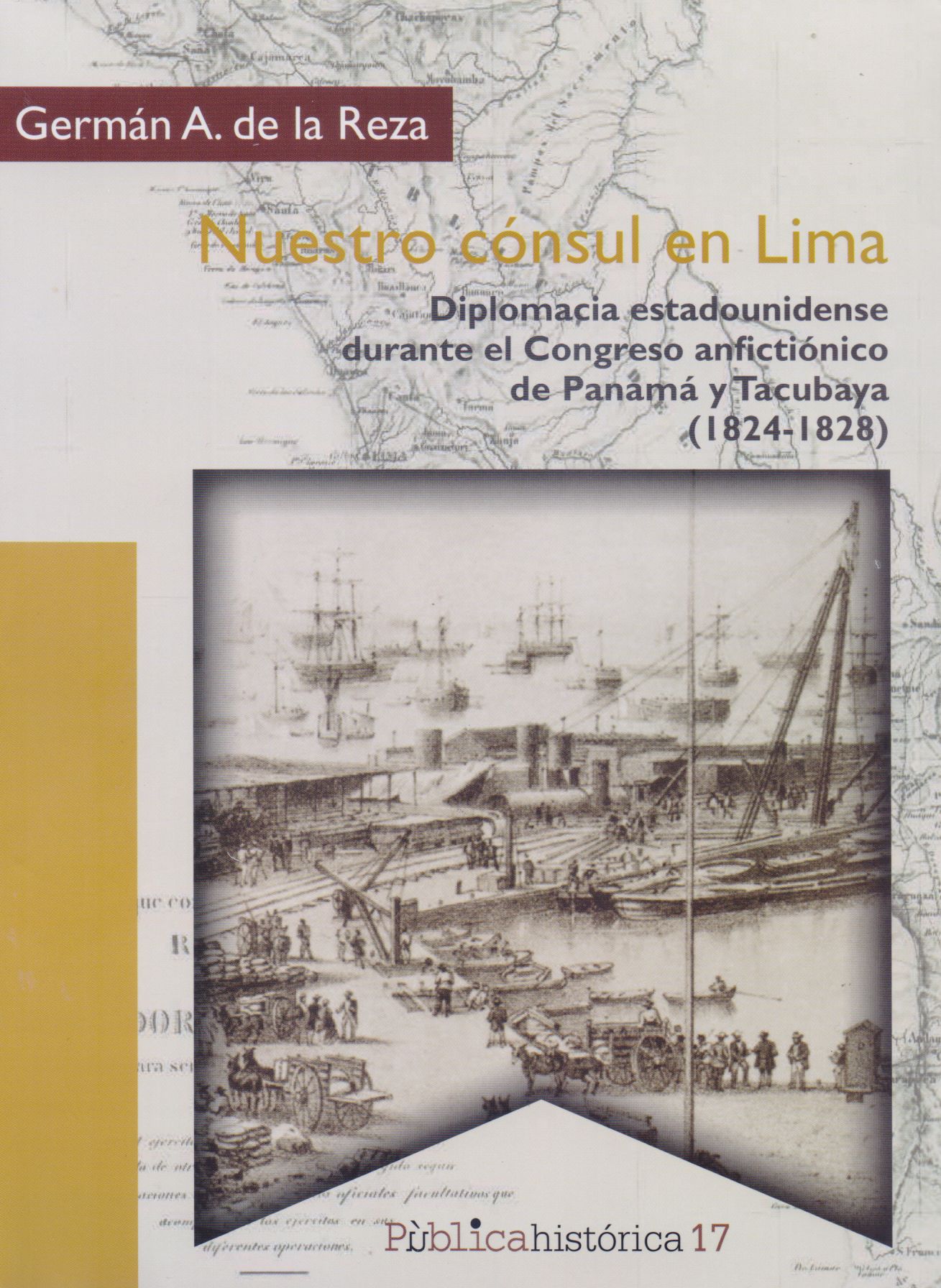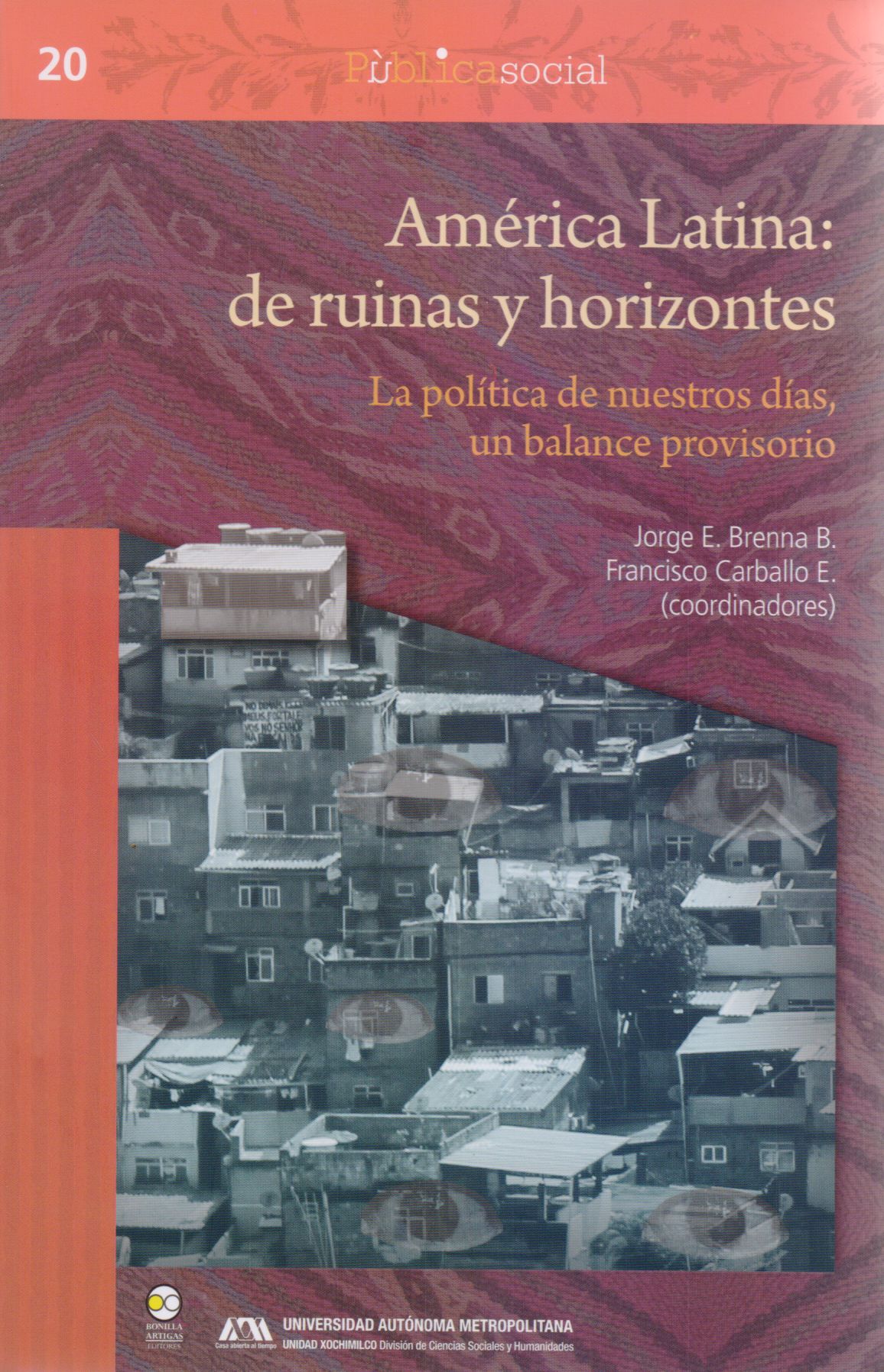Libros relacionados
 |
Nuestro Cónsul en Lima. Diplomacia Estadounidense Durante el Congreso Anfictióni De la Reza, Germán A. Bonilla Artigas Editores |
 |
Desafío de la Democracia, El: un Balance de la Argentina Contemporánea Gaggero, Horacio / Iriarte, Alicia / Roitberg, Humberto Ediciones del Signo |
 |
América Latina: de Ruinas y Horizontes. La Política de Nuestros Días, un Balance Brenna B. , Jorge / Carballo E. , Francisco (Coordinadores) Bonilla Artigas Editores |
 |
<<axiomas Políticos Sobre la América>> Los: de Alejandro Malaspina Lucena Giraldo, Manuel / Pimentel Igea, Juan Doce Calles |
 |
Ensayo Político Sobre la Isla de Cuba (Alejandro de Humboldt) Puig-Samper, Miguel Ángel / Naranjo Orovio, Consuelo Doce Calles |
 |
Narratives Of Identity In Social Movements, Conflicts And Change Hancock, Landon Emerald Group Publishing Ltd . |
 |
Política Económica: Elaboración, Objetivos e Instrumentos Cuadrado, Juan / Mancha, Tomás / Villena, José / Casares, Ja Mc Graw Hill Educacion |


|
Título: Network Power. The Social Dynamics Of Globalization | |
| Autor: Singh Grewal David | Precio: $234.00 | |
| Editorial: Yale University Press | Año: 2009 | |
| Tema: Politica, Economia | Edición: 1ª | |
| Sinopsis | ISBN: 9780300151343 | |
| For all the attention globalization has received in recent years, little consensus has emerged concerning how best to understand it. For some, it is the happy product of free and rational choices; for others, it is the unfortunate outcome of impersonal forces beyond our control. It is in turn celebrated for the opportunities it affords and criticized for the inequalities in wealth and power it generates.
David Singh Grewal's remarkable and ambitious book draws on several centuries of political and social thought to show how globalization is best understood in terms of a power inherent in social relations, which he calls network power. Using this framework, he demonstrates how our standards of social coordination both gain in value the more they are used and undermine the viability of alternative forms of cooperation. A wide range of examples are discussed, from the spread of English and the gold standard to the success of Microsoft and the operation of the World Trade Organization, to illustrate how global standards arise and falter. The idea of network power supplies a coherent set of terms and concepts_applicable to individuals, businesses, and countries alike_through which we can describe the processes of globalization as both free and forced. The result is a sophisticated and novel account of how globalization, and politics, work. David Singh Grewal is a member of the Harvard Society of Fellows and an affiliated fellow of the Information Society Project at Yale Law School. |
||
Librería Bonilla SA de CV © Todos los derechos reservados. 2019
Última actualización: Jul 2019





